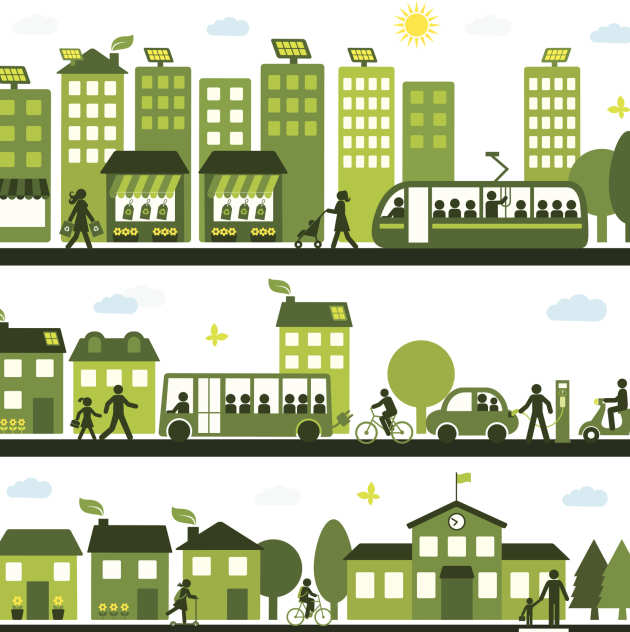Topics: Energy and Low-Carbon Futures
Type: Evidence & submission papers
Publication date: May 2020
Download
Summary
Authors: Rosanna Hine, Paloma Ortega Arriaga, Ajay Gambhir, Lina Fedirko , Heleen van Soest
 This report assesses a variety of schemes that encourage low-carbon travel and disincentivise high-carbon travel, and draws lessons for governments, regulators, businesses and philanthropy.
This report assesses a variety of schemes that encourage low-carbon travel and disincentivise high-carbon travel, and draws lessons for governments, regulators, businesses and philanthropy.
Introduction
To achieve net-zero greenhouse gas emissions to deliver the Paris Agreement’s goals, all sectors must undergo deep emissions reductions. Approximately one-quarter of global CO2 emissions from fossil fuel combustion come from the transport sector. Transport will be challenging to fully decarbonise in the coming decades, owing to the difficulty in substituting low- for high-carbon fuels in freight, aviation and shipping, as well as infrastructural inertia.
A relatively underexplored opportunity to reduce emissions in the transport sector is through behavioural and societal changes, specifically by encouraging and incentivising lower-carbon travel choices and through disincentivising higher-carbon choices. A variety of studies have considered longer-term behaviour changes in sectors including transport, to achieve ambitious climate targets, but such behaviour change scenarios are not yet mainstream in the climate change mitigation literature.
The emergence of the Covid-19 pandemic and the imposition of lockdowns across the world have given rise to significant changes in the transport sector, with a large share of personal and business travel replaced by online interactions and activities. This has resulted in considerable reductions in both greenhouse gas emissions as well as local air pollution, and highlighted the potential of longer-term behavioural change in the transport sector to contribute to addressing climate change.
This report assesses the effectiveness and replicability of a variety of schemes that encourage low-carbon travel and disincentivise high-carbon travel, and draws lessons for governments, regulators, businesses and philanthropy.
Download: Incentivising low-carbon travel [PDF]
[Image credit: Si-Gal]
View publications by:
Topic
Climate Science
Earth and Life Sciences
Energy and Low-Carbon Futures
Resources and Pollution
Economics and Finance
Health
View all publications and browse by year
Publication type
Briefing papers and Briefing notes
Grantham Institute Outlooks
Evidence & submission papers
Infographics
Institute reports and analytics notes
Grantham notes
Collaborative publications
Discussion papers
Institute event overviews
Working papers